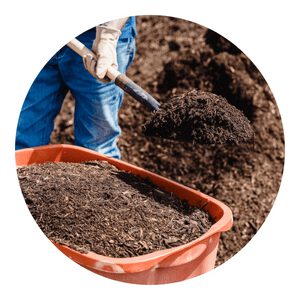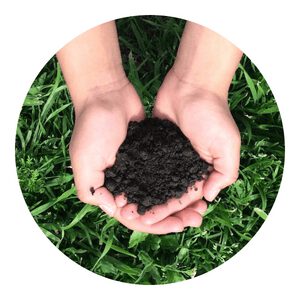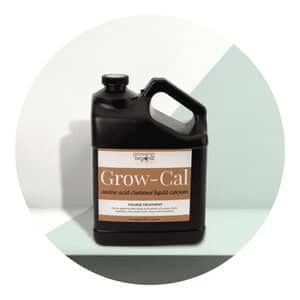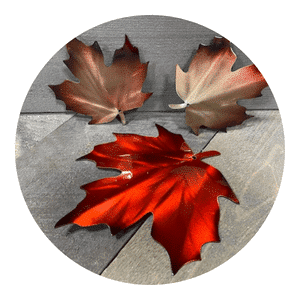The Best Organic Fertilizers For Different Types Of Plants
Organic fertilizers are an increasingly popular option for gardeners and homeowners looking to maintain a healthy, lush garden without resorting to chemical fertilizers.
With the right organic fertilizer, you can keep your plants healthy and vibrant while helping create a more sustainable environment.
We will also provide advice on how to choose the best fertilizer for your garden.
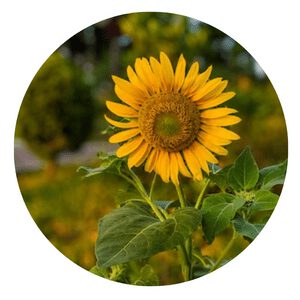
Organic Fertilizer Menu
Organic Fertilizers
Organic fertilizers are becoming increasingly popular for those looking to create a healthier and more environmentally friendly garden.
With so many different types of organic fertilizers available, it can be hard to determine which fertilizer is best suited for your plants.
Organic fertilizers are made from natural materials such as animal manure, composted plant matter, seaweed extract and rock dust.
They work by providing essential nutrients to the soil that help to promote healthy root and foliage growth.
These organic materials also help improve the soil structure so that it better holds water and oxygen while loosening heavy clay soils.
Organic fertilizers can also attract beneficial insects such as earthworms and ladybugs who will aid in keeping pests at bay while contributing further nutrients back into the soil.
Types of Organic Fertilizers
Organic fertilizers are the best choice for many gardeners and farmers when it comes to keeping plants healthy and producing quality harvests.
But not all organic fertilizers are created equal, so it’s important to understand which type of fertilizer is best suited for certain plants.
There are several different types of organic fertilizers available, each with their own unique benefits and drawbacks.
Compost
Compost is one of the best organic fertilizers for different types of plants.
It is a natural soil amendment made from decaying organic matter such as leaves, grass clippings, and food wastes.
Compost helps to improve soil structure, increase water retention and drainage, and provide nutrients to the plant roots. It also encourages beneficial microorganisms in the soil and helps reduce weed growth.
When choosing compost for your plants, it’s important to select one that is high quality and contains all the necessary nutrients your plants need.
The compost should be moist but not wet or soggy; if it’s too dry it won’t break down properly or provide adequate nutrition for your plants.
Additionally, make sure you have enough compost for the size of garden you are planting; a small garden will only require a few bags whereas a larger one may need more than 10 bags of compost.
Manure
Manure is one of the oldest and most widely-used organic fertilizers available.
It has been used to help plants grow in garden beds and fields for centuries, thanks to its ability to provide essential nutrients that are beneficial to plant health.
Not only does manure provide important nutrients, but it also helps improve soil structure and drainage by introducing organic matter into the soil.
When using manure as a fertilizer, however, it’s important to understand which types of manure work best for different types of plants.
Manures from different animals such as cows, horses, goats, sheep and poultry can vary significantly in terms of their nutrient content and make-up.
For example, cow manure is known for having higher levels of nitrogen than other manures while chicken manure has exceptionally high levels of phosphorus and potassium – perfect for flowering vegetables like tomatoes or peppers!
Organic fertilizer, first and foremost The best source to make all plants grow more Choose crops to nourish carefully For different types they have what's ore. High in nitrogen, potassium and phosphate Miracle Gro, Tomato-tone right at your gate From roses to tomatoes and peppers too Fertilized for success for any garden view.
Chappy The Gardener
Fish Emulsion
Fish emulsion is an organic fertilizer, made by taking the fish remains from processing and steaming them to produce a nutrient-rich liquid.
This liquid is then mixed with other natural ingredients like kelp, wheat middlings and feather meal to create a powerful fertilizer.
Fish emulsion contains nitrogen, phosphorus, potassium and micronutrients that promote healthy root growth, stem development and better absorption of essential minerals for plant health.
This type of fertilizer works best for vegetables, fruits and herbs because it offers rapid absorption into the soil so plants can receive a quick boost in nutrients.
It also promotes water retention in sandy soils or sandy loam soils which helps keep moisture available during hot weather spells.
Additionally, fish emulsion adds beneficial bacteria to the soil which will help break down organic matter into more easily absorbable forms of nutrition for plants.
Blood Meal
Blood meal is a popular organic fertilizer and soil amendment that many gardeners turn to for their plants.
It’s made from animal blood, usually from cows or pigs, and is a rich source of nitrogen.
Nitrogen is an essential element for plant growth, making blood meal an effective choice for fertilizing gardens and lawns.
Blood meal has a number of benefits when used in the garden. It’s easy to apply, lasts up to three months in soil, and helps increase beneficial microbial activity in soils which can improve overall plant health.
Additionally, it’s an excellent source of slow-release nitrogen that helps plants grow without burning them with too much nitrogen.
Blood meal also increases water retention in soil so it’s great during periods of drought stress or in sandy soils where water runoff occurs quickly.
Bone Meal
Bone meal is a natural and organic fertilizer that is made from the ground-up bones of animals.
It is a great source of phosphorus, calcium and nitrogen, which are essential for healthy plants.
Bone meal can be used as a soil amendment to improve soil fertility for different types of plants.
It helps to loosen heavy soils, promote better root growth and strengthen the cell walls of plant tissue.
When applying bone meal to your garden, it’s important to mix it into the topsoil prior to planting.
This will help ensure that all benefits are absorbed by the roots so they can grow strong and healthy.
For perennials or shrubs, bone meal should be applied every three years in order to maintain optimal levels of nutrients in the soil.
Seaweed Extract
Seaweed extract has been used for centuries as an effective organic fertilizer.
It’s derived from brown, green and red seaweeds, which are high in minerals and nutrients that help promote healthy plant growth.
Seaweed extract is a great choice for gardeners looking to use natural resources to fertilize their plants without the use of harsh chemicals.
This natural fertilizer is especially beneficial for vegetables and fruits, as it contains major elements such as nitrogen, phosphorus and potassium that support root growth and development.
Additionally, seaweed extract also contains trace elements like iron, copper and zinc – all essential for healthy foliage.
Using this organic fertilizer boosts soil fertility by replenishing important micronutrients that are often missing in potting soil or garden beds.
Rock Dust
Rock dust is a natural organic fertilizer that can be used to enrich soil and promote healthy plant growth.
It is made from ground-up rocks, and can come in the form of volcanic ash, granite dust, or limestone.
Rock dust contains many essential trace minerals such as iron, calcium, magnesium and potassium.
These trace minerals are not only beneficial for garden soil but also for humans who consume these plants.
Using rock dust will help to replenish lost nutrients in the soil over time and provide long-term benefits for your garden.
Organic fertilizers like rock dust offer an alternative to chemical fertilizers which may have adverse effects on plants.
They are usually more environmentally friendly than synthetic fertilizers because they don’t contain any harsh chemicals or toxins that could damage plants or contaminate groundwater supplies.
Molasses
Molasses is a thick, syrupy substance derived from sugarcane and can be used as an organic fertilizer.
It’s a great choice for gardeners looking to enhance their soil nutrient levels while avoiding chemical-based fertilizers.
Molasses is beneficial to plants because it helps add micronutrients like nitrogen, phosphorus, and potassium to the soil. It also helps retain moisture in the soil which will benefit root growth and development of plants.
As an organic fertilizer, molasses provides slow-release nutrients that are taken up by the plant gradually over time.
This makes it ideal for sustainable gardening practices as it won’t burn out your plants with too much fertilization at once.
Additionally, its sticky texture can help trap in essential bacteria that contribute to healthy plant growth.
Fertilizing Herbs
Herbs grow best when they are receiving the right nutrients, so understanding how to fertilize them correctly can make all the difference.
When it comes to plant fertilizers, organic options are always preferred over chemical ones because they are gentler and safer for both people and plants.
Firstly, it’s important to remember that not all herbs require the same type of fertilizer or treatment.
Different plants have specific needs depending on their type and size, so doing some research beforehand is key to determining which products work best for each herb type you have in your garden.
Fertilizing Vegetables
Fertilizing vegetables is a great way to ensure they are healthy and produce plentiful, tasty crops.
There are many organic fertilizer options available that can provide the necessary nutrients for different types of plants.
Organic fertilizers such as compost, manure and rock powders can be used to support vegetable growth without sacrificing taste or quality.
Organic fertilizers contain essential nutrients like nitrogen, phosphorus, and potassium which help with plant growth and keep your garden looking its best.
Compost is an excellent choice for any vegetable garden as it provides several key elements including calcium, magnesium, sulfur and iron.
Manure is also a good option for vegetable gardens since it helps to break down soil particles into more usable forms of nitrogen and other minerals.
Rock powders such as greensand or azomite powder can also help supplement your fertilizer needs while providing trace minerals too.
Fertilizing Flowers
Are you looking for the best organic fertilizers to make your garden bloom?
Fertilizing flowers is one of the most important steps in gardening.
The right fertilizer can help promote lush and vibrant blooms, and it doesn’t have to be expensive either.
Organic fertilizers are a great way to keep your flowers growing healthily without having to worry about harsh chemicals or environmental pollutants.
You’ll learn which ones are best for particular plants, as well as tips on when and how much fertilizer to use.
By following these tips, you’ll be sure to have a beautiful garden!
Fertilizing Trees & Shrubs
Trees and shrubs are essential elements of any landscape, providing beautiful visuals and shade.
The right fertilizer can help keep these plants healthy and thriving.
Organic fertilizers provide slow-release nutrition that will help nourish the soil over time, rather than providing a quick dose of nutrients like synthetic fertilizers might do.
Here is a guide to finding the best organic fertilizers for different types of trees and shrubs in your yard or garden.
Organic options such as compost and manure can be beneficial to trees and shrubs because they provide trace minerals that are often missing in soils due to overuse or degradation.
Additionally, organic fertilizers tend to break down more slowly than synthetic fertilizers which helps reduce leaching into groundwater supplies.
Fertilizing Houseplants
Fertilizing houseplants is an important part of keeping them healthy, vibrant and thriving.
The right type of fertilizer can help your plants grow strong and produce beautiful foliage.
Organic fertilizers provide a natural alternative to chemical fertilizers, as they are derived from plant or animal sources.
Organic fertilizers are typically sold in liquid form and contain essential nutrients such as nitrogen, phosphorus, potassium, calcium and magnesium.
Different types of plants require different amounts of these nutrients in order to thrive; therefore it’s important to choose the right type of fertilizer for each plant species.
For example, cacti need a low-nitrogen fertilizer while tomatoes need a high-nitrogen one.
Applying Organic Fertilizers
Organic fertilizers offer a natural way of providing essential nutrients to your plants.
It’s the perfect solution for gardeners looking to maintain the health and sustainability of their gardens.
Different types of plants require different types of fertilizers, so understanding which ones are best suited for your particular species is key in helping them thrive.
Organic fertilizers provide nourishment without any chemical additives or synthetic substances, making them an ideal choice for people looking to keep their gardens safe from chemicals and pollutants.
From manure-based composts to fish emulsions and seaweed extracts, there is no shortage of organic products available on the market that can be used as fertilizer.
Each one offers a unique combination of minerals and nutrients that will help improve soil composition, promote healthy growth and encourage blooms in your plants.
In conclusion,organic fertilizers are a great way to nourish plants with natural nutrients, allowing them to grow and thrive in a healthy environment.
Different types of organic fertilizers can provide the necessary nutrients for different types of plants, from flowering shrubs to succulents.
When it comes to choosing an organic fertilizer for your plants, consider their needs and research the best options for your particular plant type.
With careful selection, you can ensure that your plants get the best nutrition available in an environmentally friendly way.
Click To Grow
Helps Us Grow – Share If You Like











